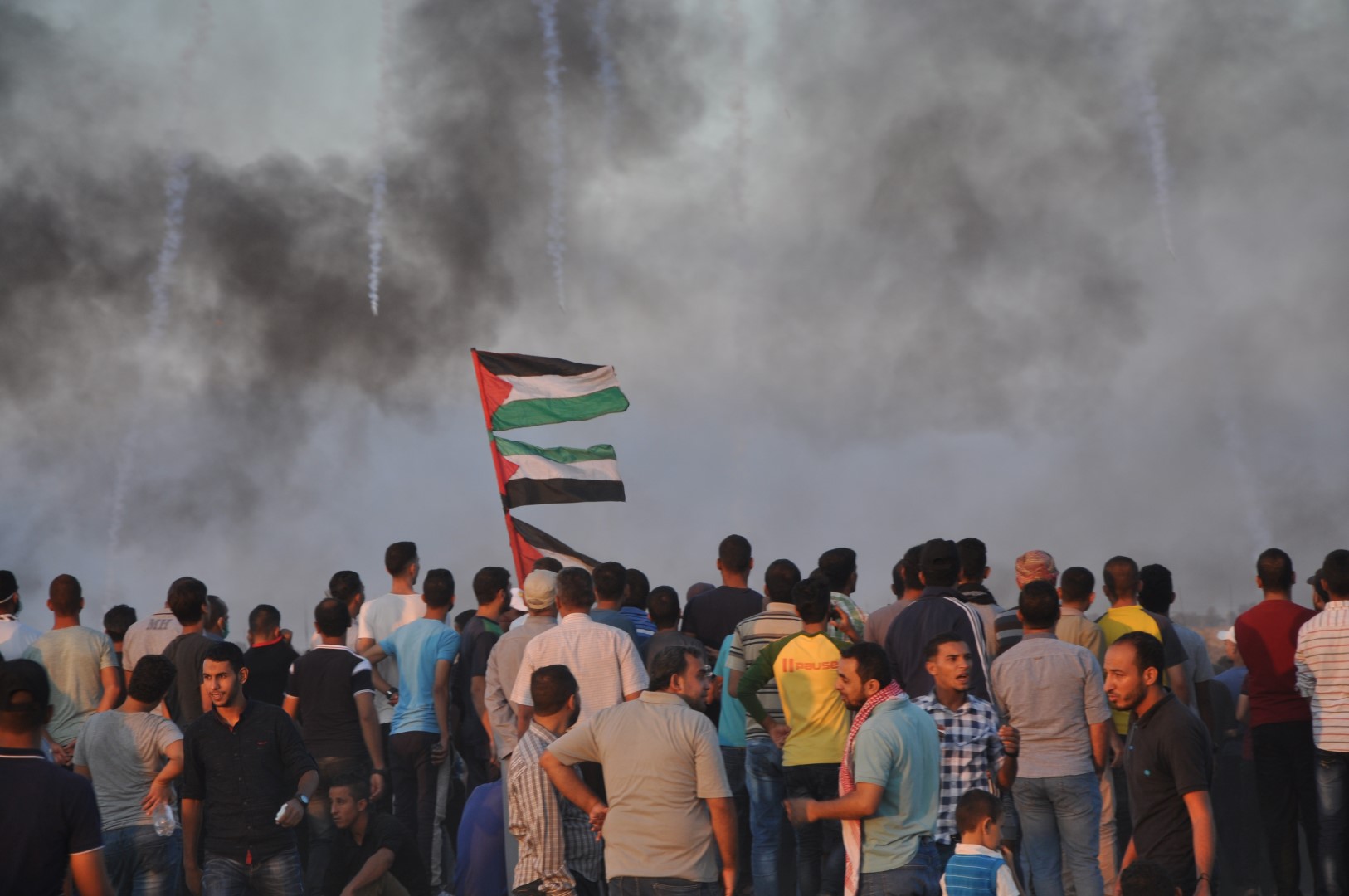
From 30 March 2018 until 27 December 2019 (86 weeks), thousands of Palestinians participated in the weekly Great March of Return (GRM) protests along the eastern parts of the Gaza Strip demanding an end to the 13-year inhumane and illegal Israeli closure and the realization of the right of the return for Palestinian refugees and their descendants, enshrined in international law.[1] In response, Israeli occupation suppressed the protests since the very beginning by using live ammunition, rubber-coated bullets and gas canisters against civilian unarmed protestors, who were posing no threat to the well-equipped, protected, and distant Israeli soldiers. According to PCHR’s documentation, in the span of 86 weeks of protests, Israeli soldiers killed 217 civilians protestors, including 48 children, 2 women, 9 persons with disabilities, and wounded more than 14,500 others. Of those wounded, 207 protestors have become permanently disabled as result of their injuries, among them 149 amputation cases.
One year ago, the UN Commission of Inquiry into Gaza protests found their report that Israel committed serious violations of international humanitarian law and human rights law in the context of the protests which may amount to war crimes and serious violations, and called on Israel to investigate promptly, impartially, and independently every protested related killing and injury with a view to holding those responsible accountable.[2] However, as the Great March of Return marks its second anniversary, justice is still absent for the victims and their families.
Suhaib Abu Kashef, a 15 years-old child, was shot by a live bullet in the neck during a GRM protest east of Khuza’ village, Khan Younis, on 3 August 2019 while he was standing 50 meters away from the perimeter fence. He sustained a shrapnel in his spinal cord and was paralyzed as a result. He stayed in intensive care unit in the European Gaza Hospital connected to a ventilator until he succumbed to his wounds on 15 September 2018. Following the incident ,PCHR, as legal representatives of the Suhaib’s family, sent a criminal complaint to the Military Advocate General (MAG) requesting the opening of a criminal investigation into the incident attached with all the necessary evidence.[3]
However, on 24 February 2020, one and a half year later, a letter was received from the MAG stating that a criminal investigation will not be opened into the incident due to the lack of criminal suspicion.[4] In his letter, the MAG explained that Suhaib might have been shot while soldiers were confronting what he called “violent disturbances of public order” on that day, no evidence was found to create reasonable suspicion that Suhaib was injured as a result of a fatal shooting, whether direct or not, that exceeded the given instructions.
This indicates that Israel investigation system does not examine whether a violation of international humanitarian law or international human rights law has been committed, thus presuming that the rules of engagement in handling the protests to be in accordance with international law. Therefore, it excludes IOF’s killing and wounding of civilian protestors which amounts to wilful killing[5] and wilfully causing great injury to body or health.[6] Rather, the focus of the investigation is on whether the soldiers stationed at the border, followed the given instructions and rules of engagement.
Sohayb’s criminal complaint is one out of 183 criminal complaints sent to the MAG concerning violations committed in the context of the GRM. So far a criminal investigation has been opened in 9 of the Centre’s criminal complaints, while 7 have been closed for lack of criminal suspicion. The rest, 167, are still under examination.
Only one soldier has been convicted in the context of the GRM protests for the killing of 14-year old child, Othman Hilles. However, he was not convicted over the killing, but rather over a violation of Israel’s rules of engagement that could lead to threat to life and health.[7] He was sentenced to just one month in prison to be serve through-military related labour.
Israel’s unwillingness to conduct genuine investigations is due to the fact that many violations committed in the context of the protests are direct of the policies adopted by the highest political and military leaders, who have publicly pledged in many statements not to prosecute any of their soldiers on alleged crimes against the Palestinians.[8] The lack of accountability and persistent impunity for the violations committed not only denies justice for victims, but facilitates and encourages the occurrence of further violations. PCHR confirms that it shall continue to work on holding responsible Israeli officials and military leaders accountable before the International Criminal Court and foreign national courts operating under the principle of universal jurisdiction.
Download (PDF)
——————————–
[1] For further information on the Great March of Return protests see, PCHR, “Question and Answer: 1st Year Anniversary of the March of Return Demonstrations” (28 March 2019), available at: https://pchrgaza.org/?p=12225.
[2] See UN Human Rights Council, Resolution 40/13, 22 March 2019, UN Doc. A/HRC/RES/40/13; UN Human Rights Council, Report of the independent international commission of inquiry on the protests in the Occupied Palestinian Territories, 25 February 2019,UN Doc. A/HRC/40/74. See also PCHR, “PCHR Welcomes UN Investigative Report on Violations Committed during March of Return” (28 February 2019), available at: https://pchrgaza.org/?p=12041
[3] To read PCHR’s criminal complaint concerning the killing of Suhaib Abu Kashef, click here. (Hebrew)
[4] To read the MAG’s response to PCHR’s criminal complaint concerning the killing of Suhaib Abu, click here. (Hebrew)
[5] Article 8(2)(a)(i), Rome Statute of the International Criminal Court.
[6] Article 8(2)(a)(iii), Rome Statute of the International Criminal Court.
[7] PCHR, “In Disregard for Justice: Israeli Soldier, Killer of Palestinian Child, Receives One Month Prison Sentence” (30 October 2019), available at: https://pchrgaza.org/?p=13462
[8] See, e.g., Aljazeera,”Netanyahu praises Israeli army after killings of Palestinians” (31 March 2019), available at:“https://www.aljazeera.com/news/2018/03/netanyahu-praises-israeli-army-killing-palestinians-180331183611045.html